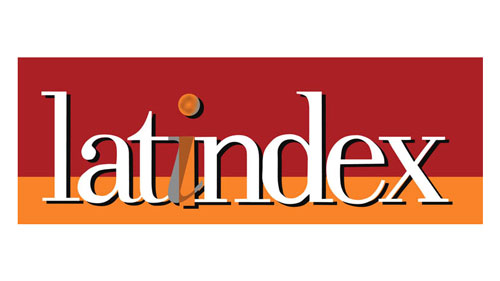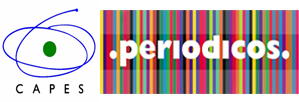The intercultural foreign language (German) teaching through the series Dark
DOI:
https://doi.org/10.26512/rhla.v18i2.26648Keywords:
Intercultural Education, German Culture, Series DarkAbstract
In Foreign Language (FL) Intercultural Teaching, culture learning promotes engagement with the different, through the development of intercultural communicative competence. This requires that the student maintains contact with the target culture, which can occur through television series in the FL. Thus, with the objective of presenting German cultural aspects present in the television series Dark and highlighting reflections for the work with such materials in the classroom, based on research about intercultural foreign language education (BYRAM, 1997, 2008, 2011; LIDDICOAT, 2014; MORAN, 2001), a qualitative and exploratory study was carried out. Based on the analysis, we conclude that it is possible to use the series in focus to teach products, practices and perspectives of German culture and develop intercultural communicative competence.
References
BAUER, Martin W.; GASKELL, George; ALLUM, Nicholas C. Qualidade, quantidade e interesses dos conhecimentos: evitando confusões. In: BAUER, M. W. GASKELL, G. (Org.) Pesquisa qualitativa com texto, imagem e som: um manual prático. 7. ed. Petrópolis: Vozes, 2008. p.17-35.
BOLTEN, Jürgen. Interkulturelle kompetenz. Thüringen: Landeszentrale für politische Bildung, 2007.
BYRAM, Michael. Teaching and assessing intercultural communicative competence. Bristol: Multilingual matters, 1997.
______. From foreign language education to education for intercultural citizenship. Clevedon: Multilingual Matters, 2008.
______. Conceptualizing intercultural (communicative) competence and intercultural citizenship. In: JACKSON, J. (Ed.). The Routledge handbook of language and intercultural communication. Abingdon: Routledge, 2011. p. 85-97.
BYRAM, Michael; GRIBKOVA, Bella; STARKEY, Hugh. Developing the intercultural dimension in language teaching: a practical introduction for teachers. Strasbourg: Council of Europe, 2002.
CARVALHO, Ana A. C. C. A. S. Materiais autênticos no ensino das línguas estrangeiras. Revista Portuguesa de Educação, v. 6, n. 2, p. 117-124, 1993.
FRUMUSELU, Anca D. et al. Television series inside the EFL classroom: bridging the gap between teaching and learning informal language through subtitles. Linguistics and Education, v. 32, p. 107-117, 2015. Disponível em: http://dx.doi.org/10.1016/j.linged.2015.10.001. Acesso em: 01 abr. 2019.
GERHARDT, Tatiana E.; SILVEIRA, Denise T. Métodos de pesquisa. Porto Alegre: Editora da UFRG, 2009.
HOLME, Randal. Carrying a baby in the back: teaching with an awareness of the cultural construction of language. In: BYRAM, Michael.; GRUNDY, Peter. (Orgs.). Context and culture in language teaching and learning. Clevedon: Multilingual Matters, 2003. p. 18-31.
HOUSE, Juliane. What is an ‘intercultural speaker’. In: SOLER, E. A. JORDÀ, M. P. S. (Eds.). Intercultural language use and language learning. Dordrecht: Springer, 2007. p.7-21.
KRAMSCH, Claire. The cultural component of language teaching. Language, culture and curriculum, v. 8, n. 2, p. 83-92, 1996.
______. Intercultural communication. In: CARTER, R.; NUNAN, D. (Eds.). The Cambridge guide to teaching English to speakers of other languages. Cambridge: Cambridge University Press, 2001. p.201-206.
______. Third culture and language education. In: COOK, V;. WEI, L. (Orgs.) Contemporary applied linguistics. V. 1. Londres: Continuum, 2009. p.233-254
LIDDICOAT, Anthony J. Language teaching and learning from an intercultural perspective. In: HINKEL, E (Ed.) Handbook of research in second language teaching and learning. Abingdon: Routledge, 2011. p.837-855.
______. Pragmatics and intercultural mediation in intercultural language learning. Intercultural Pragmatics, v. 11, n. 2, p. 259-277, 2014.
MARQUES, Lívia S.; ROZENFELD, Cibele. C. F. O uso de seriados televisivos no ensino de alemão: aspectos linguísticos, socioculturais, ideológicos e político-sociais em Deutschland 83. Pandaemonium Germanicum, v. 21, n. 33, p. 64-86, 2018.
MARQUES-SCHÄFER, Gabriela. Deutsch lernen online: eine analyse interkultureller interaktionen im chat. Tübingen: Narr Verlag, 2013.
MORAN, Patrick R. Language-and-culture. In: MORAN, P. R.; LU, Ziwen. Teaching culture: perspectives in practice. Boston: Heinle & Heinle, 2001. p. 34-47.
RAMOS-GONZALEZ, Noelia M.; RICO-MARTÃN, Ana M. Análisis de la expression de la cortesia em RTVE internacional para la enseñanza del español-lengua extranjera. Revista de Linguísica Teórica y Aplicada, Concepción, v. 52, n. 1, p. 79-103, 2014.
STEFANI, Viviane. C. G. O cinema na aula de língua estrangeira: uma proposta didático-pedagógica para o ensino-aprendizagem de espanhol. Dissertação (Mestrado em Linguística) ”“ Universidade Estadual de São Carlos, São Carlos, 2010.
STIPANÄŒEVIĆ, Ana. Die Vermittlung der interkulturellen Kompetenz im unterricht Deutsch als fremdsprache durch die rezeption von fernsehserien. In: TINNEFELD, T. Fremdsprachenunterricht im spannungsfeld zwischen sprachwissen und sprachkönnen: Saabrücker schriften zu linguistik und fremdsprachendidaktik. Saarbrücken: SSLF, 2014. p. 491-501.
VICENTINI, Giseli P. M. A Linguística de corpus e o seriado Friends como base para o ensino de chunks em sala de aula de língua inglesa. 2006. 135f. Dissertação (Mestrado em Linguística Aplicada e Estudos da Linguagem) ”“ Pontifícia Universidade Católica, São Paulo, 2006.
WASHBURN, Gay N. Using situation comedies for pragmatic language teaching and learning. TESOL Journal, v. 10, n. 4, p. 21-26, 2001.
ZANÓN, Noa T. Using subtitles to enhance foreign language learning. Porta Linguarum, v. 6, p. 41-52, 2006.
Downloads
Published
Issue
Section
License
Copyright (c) 2019 Revista Horizontes de Linguistica Aplicada

This work is licensed under a Creative Commons Attribution-NonCommercial-NoDerivatives 4.0 International License.

A Revista Horizontes de Linguística Aplicada de http://seer.bce.unb.br/index.php/horizontesla/index é licenciado sob uma Licença Creative Commons Atribuição-Uso não-comercial-Vedada a criação de obras derivadas 3.0 Unported.
- Autores mantém os direitos autorais e concedem à revista o direito de primeira publicação, sendo o trabalho simultaneamente licenciado sob a Creative Commons Attribution License o que permite o compartilhamento do trabalho com reconhecimento da autoria do trabalho e publicação inicial nesta revista.
- Autores têm autorização para assumir contratos adicionais separadamente, para distribuição não exclusiva da versão do trabalho publicada nesta revista (ex.: publicar em repositório institucional ou como capítulo de livro), com reconhecimento de autoria e publicação inicial nesta revista.




